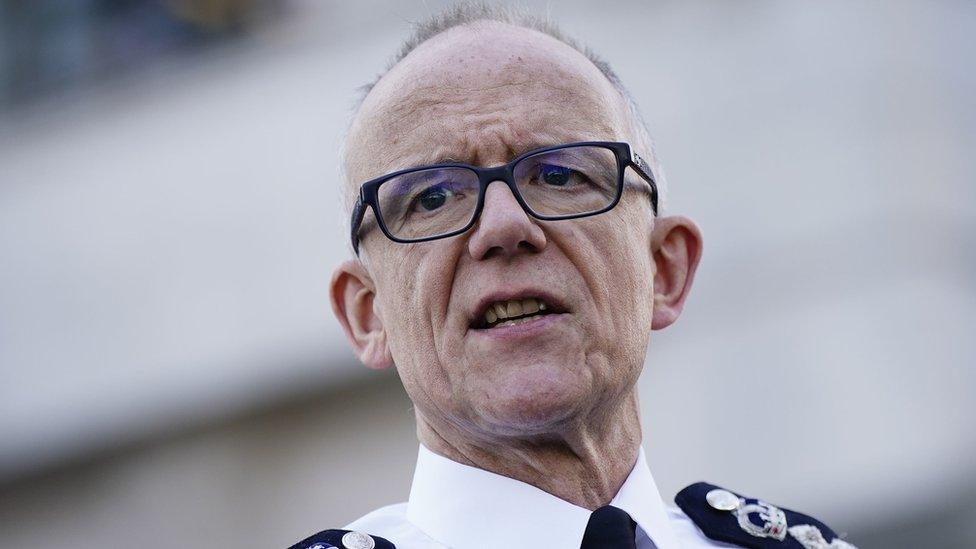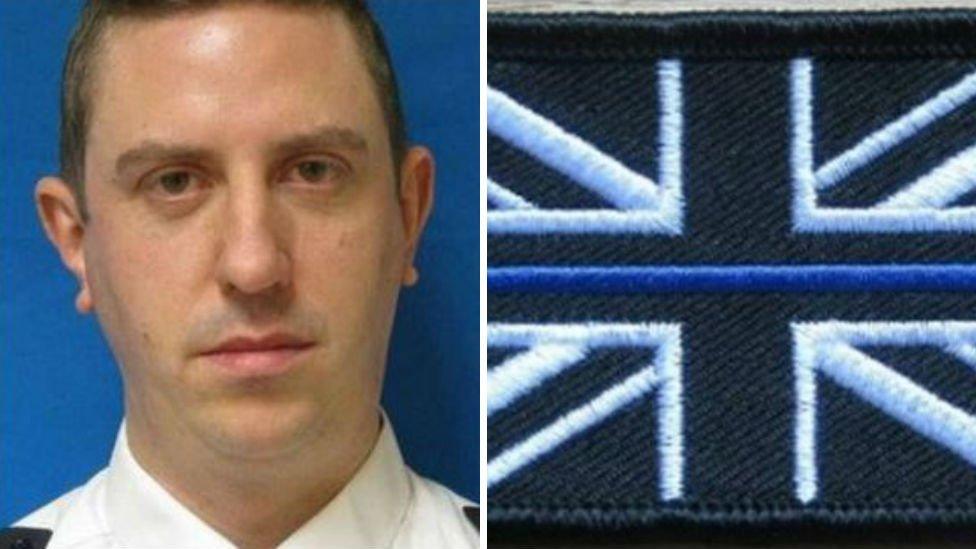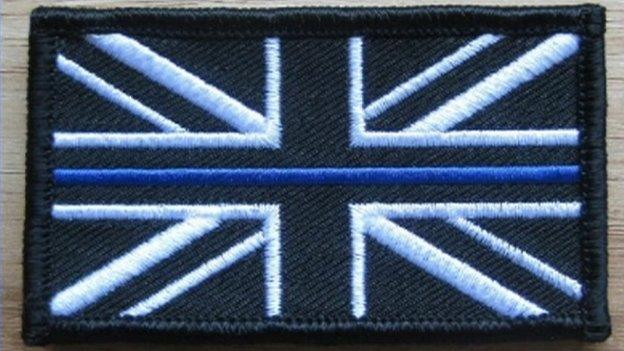Met Police commissioner defends thin blue line badge ban
- Published

Sir Mark Rowley said it was "tricky territory"
Met Police Commissioner Sir Mark Rowley has defended his decision to ban officers from wearing the thin blue line badge.
The badge was created as a "mark of remembrance and respect" for officers who have died while working.
Sir Mark told City Hall's Police and Crime Committee that he was "cautious" about officers "showing allegiance to any cause" on their uniform.
Susan Hall, Conservative AM, called the decision "a mistake".
Sir Mark told the meeting on Wednesday that the Met Police uniform policy allowed officers to wear the Police Memorial Day badge, the Royal British Legion's Remembrance Day poppy and the Help for Heroes badge or wristband.
"I'm very reticent to extend that," he said. "I think having as close to nothing as possible makes sense."
Sir Mark said that in the US, the equivalent badge to the thin blue line one "has ended up being both a policing symbol and is being used by some hard-right groups".
He added: "That's why this is a tricky territory. This is contentious."
The grey union flag badge with a thin blue line running through it is produced by the Care of Police Survivors charity.
"I do understand that officers care deeply and they want to show how they care about their colleagues and that creates a bit of tension, and we're discussing it in the organisation," Sir Mark added.
He said that if there was not a "firm line", officers could end up wearing "hundreds of badges".
Ms Hall said she was "absolutely with" officers choosing to wear the badge if they wanted to commemorate colleagues who had died, adding that "it means so much to officers".

Follow BBC London on Facebook, external, Twitter , externaland Instagram, external. Send your story ideas to hellobbclondon@bbc.co.uk, external
Related topics
- Published11 October 2015

- Published17 February 2015
